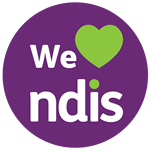CONFIDENTIALITY
The client/therapist relationship is private and is respected as a personal conversation between two individuals. Discussion outside of this space is unacceptable without the Therapist having first been given INFORMED CONSENT from the Client.
INFORMED CONSENT
Where the client is given sufficient information to ensure they fully understand what they are consenting to, and involves explaining the risks, benefits, alternatives and consequences. The choice to consent must be voluntary and is particularly important for vulnerable individuals. Informed consent ensures individuals are empowered to make decisions that align with their values and preferences and more likely to achieve positive outcomes. Sometimes however, ethical and legal obligations take priority, and mandatory reporting may be required.
MANDATORY REPORTING
Confidentiality sometimes has limits and this is where mandatory reporting takes over. Certain professionals are legally required to report suspected cases of abuse or neglect to the appropriate authorities. This is necessary to protect vulnerable individuals who are at risk of harm. Examples of mandatory reporters include teachers, law enforcement personnel, social workers, and healthcare providers. Confidentiality may need to be broken where there is disclosure or evidence of serious self-harm (including drug or alcohol misuse that is life-threatening), if suicide is threatened or attempted, or where there is serious sexual, emotional or physical abuse or neglect. It can also involve threats of harm to another person. Consent will always be sought from the client prior to disclosure, however the above concerns will always take priority due to the significant impact of harm, and legal ramifications of not reporting.
LIMITS TO CONFIDENTIALITY
The following is a list of exceptions:
- Duty to Warn and Protect – If the client discloses a plan to threat or harm him /herself, the therapist must attempt to notify the nominated “Emergency Contact” or family (depending on client’s age) and legal authorities. In addition, a disclosure to plan to threaten or harm another person, the therapist is required to warn the possible victim and notify legal authorities.
- Abuse of Children and Vulnerable Adults – If it is disclosed, or suspected, that there is abuse or harmful neglect of children or vulnerable adults (i.e. the elderly, disabled /incompetent), the therapist must report this information to the appropriate state agency and /or legal authorities.
- Prenatal Exposure to Controlled Substances – Therapists must report any admitted prenatal exposure to controlled substances that could be harmful to the mother or the child.
- Minors /Guardianship – Parents or legal guardians of minor clients have the right to access the client’s records. Section 11 of the Children and Young People Act 2008 (ACT) defines a child as a person who is under 12 years old. Each state of Australia also has specific laws.
- Insurance Providers – Insurance companies and other third-party payers are given information that they request regarding services to the clients. The type of information that may be requested includes: types of service, dates /times of service(s), assessment, treatment plan, description of impairment, progress of therapy, case notes, summaries, etc.
CLIENT RECORDS
Client records are kept for the purpose of document and review, and to protect the therapist from public liability in the case of legal or ethical proceedings. Client records contain information (including information stored electronically) used to document the nature, delivery, progress, or results of therapy. Records include: identification data, referral information, dates, types of services, fees, and anything else documented e.g., treatment plans and consultation notes. Records may be created and maintained in a variety of media, including electronic systems, so long as their utility, confidentiality and durability are assured. All records are kept safe and secure, with properly limited access, and where timely retrieval is possible. With electronic and web-based systems, there are appropriate encryption and security systems in pace (as well as password protected).


